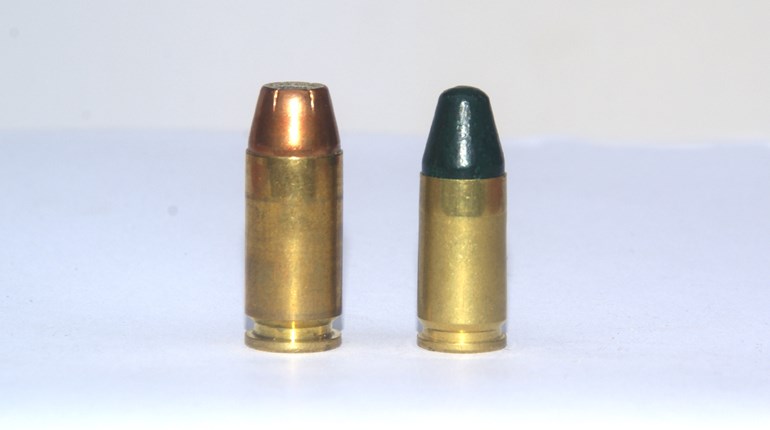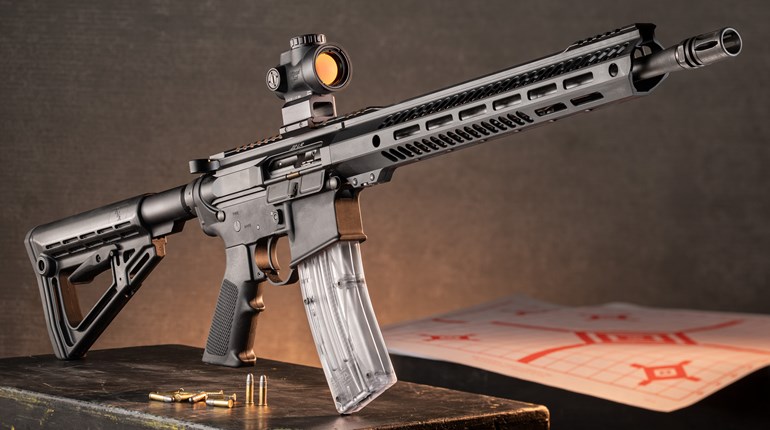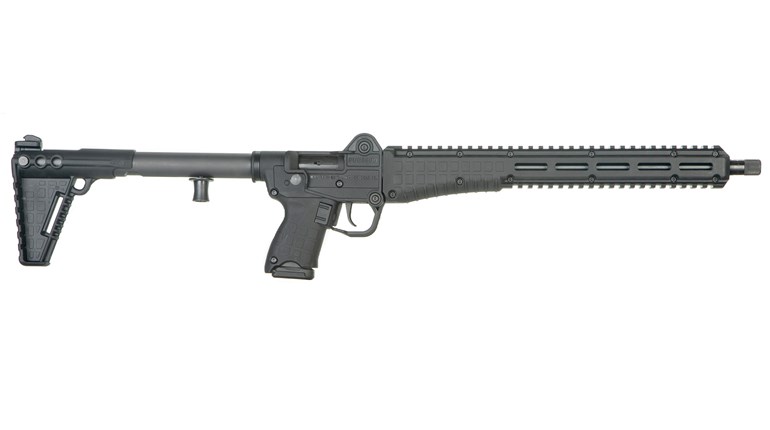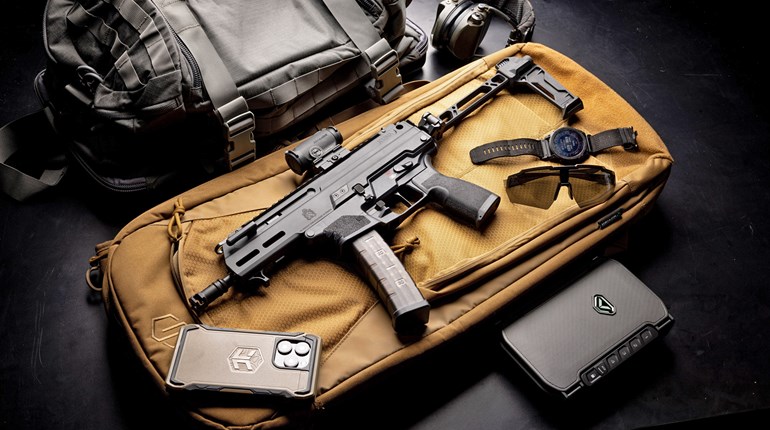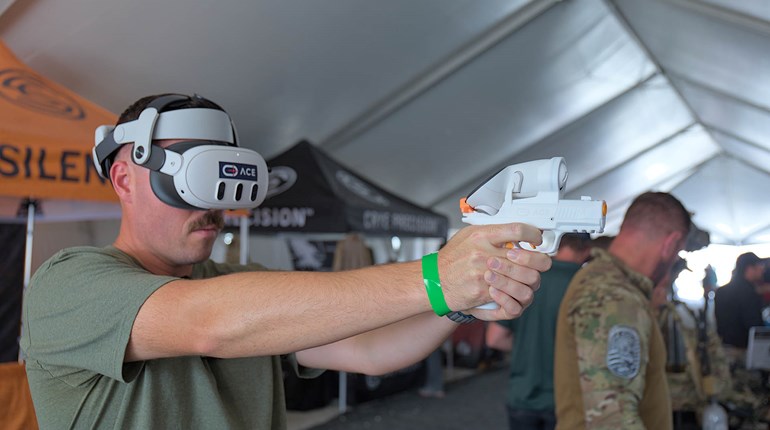
We all know those people who seem to constantly stumble into good fortune. They may go through a seemingly endless series of misadventures only to wind up in the catbird seat—you know, like writing about guns for a living. Well, the brain trust that is the staff at Shooting Illustrated may be thus described. They thought they’d assigned another story on one of the new pistol-caliber carbines, this one from the up-and-coming gun manufacturer Rise Armament. It wasn’t until far into the process that they realized the Quarter Circle 10 received isn’t a pistol-caliber carbine at all. It’s a pistol-caliber pistol.
Huh? Yeah, note the SB Tactical arm brace and 7.5-inch barrel. It’s a pistol. But, with blind, dumb luck, we therefore get to present you with something even cooler than a PCC. Cooler? Yup. Because it’s more compact and versatile, and (for now) rarer.
The problem is what to call a pistol-caliber pistol. We could just use the acronym PC—um, never mind. Anyway, this cracking good firearm, the Rise Armament Quarter Circle 10, is available in two versions: the competition-oriented Flash and the personal-protection-positioned Grit. We received the latter. To fully understand the impetus behind it and actual PCCs, it’s necessary to take a step back and look at older PCCs.
The big problem with previous PCCs before the recent wave was twofold: magazines and how to get them to fit into the receiver. Nobody wanted a PCC that was limited to 10-shot magazines. Yes, the lower felt recoil, lower muzzle blast and easier-to-use on indoor ranges in the winter attributes were attractive, but 10 shots? Really? So the designers used one or another submachine-gun magazine. For example, the Colt used a modified Uzi mag. And they were awful.
The big change came when designers did two things: One, they realized there had been warehouses full of Glock magazines sold. Seemingly everyone who owned a firearm had either a Glock or magazines for it. The second was that with the prevalence of CNC machining for firearms production, it was no longer necessary to pin a pair of adapter blocks into a forged AR lower. Those blocks had filled the 5.56-size magazine well so that a pistol magazine would properly lock in place.

If you are going to machine the lower to accept a Glock magazine, why make it the full size of an AR magazine in 5.56 NATO?
And here we are, with the Rise pistol accepting Glock magazines and machined to accept them with no excess bulk, metal or weight. Rise begins the build with Quarter Circle 10 billet-machined receivers, paired for a snug fit.
Rise Armament does offer a true PCC version of the Quarter Circle 10; it just happens that it sent the pistol.
The upper receiver is machined from billet by Quarter Circle 10, with no hinged door, no ejector lump and no forward assist. The top is flat, with a mil-spec rail machined into it. The rail is met at the front of the receiver by a blending fillet on the freefloat handguard. There is also a short rail section at the very front of the handguard, in case you want to mount an iron sight up there.
The handguard is clamped to the barrel nut with three husky Allen-head bolts and it is kept aligned by means of a pair of stout tabs. The tabs, an integral part of the handguard, ride on either side of the upper portion of the receiver and keep it from being rotated. The handguard is M-Lok compatible, so you can mount extras here to your heart’s content—be prudent with AR pistols, though.
The upper receiver has Rise Armament engraved on the right side and the M-Lok handguard has Rise Armament and the M-Lok logo applied in an inset. The left side of the upper receiver is left blank, but the left-hand handguard has the same Rise Armament and M-Lok logo in its inset as the right does.
Inside the upper is a straight blowback bolt-carrier assembly. Actually, assembly isn’t the correct term, as the bolt is the carrier. It is all machined as a single piece. The carrier/bolt is made of 8620 steel, heat-treated for a lifetime of service and given a QPQ nitride finish. Nails should be this tough. At the back end, there is a Rise Armament RA-212 extended-latch charging handle.
Inside the handguard, the barrel is machined from 4150 CMV steel. It has the same QPQ nitride finish as the bolt and is threaded for a flash hider, muzzle brake or suppressor; your choice. Both Flash and Grit are offered with three barrel lengths and muzzle devices: 7.5, 10.5 and 16.1 inches. Obviously, the last one is the actual carbine and not a pistol. As we said, our gun had a 7.5-inch barrel and had a KAK Industry Flash Can, a large flash hider with an inverted cone inside of it. This kills the flash and it also diverts muzzle blast away from the shooter. It is not a suppressor, but it does make life easier for the shooter. Longer barrels will be shipped with an RA-701 compensator, to reduce felt recoil and muzzle rise. For just having fun, the comp might not matter. But, if you plan on using the Rise in competition, everything helps and comps can help a lot.
The lower is even more interesting, slick and cool. It is machined from billet and the magazine well is proportioned for a Glock 9 mm magazine. This means the magazine button is actually a lever, with the activation pad right where you expect it to be, but the lever extends forward and latches into the locking notches of a standard Glock magazine. So, all the Glock magazines you have on hand will work just fine in this gun.
The firing mechanism is held in place by means of KNS anti-rotation pins and the selector lever is left black, all of this contrasting to the FDE Cerakote finish applied to the receiver and handguard of the pistol received here. The selector lever is also notable because the fire-control set Rise has selected uses a 45-degree throw on the selector. The selector lever is sculpted, not your G.I. style, and the trigger is a straight blade.
Inside, there is one of two trigger assemblies installed. The Flash gets an RA-535 Advanced Performance, with a 3.5-pound pull, short overtravel and a fast reset. The Grit receives an RA-140 Flat Super Sporting trigger, with an identical 3.5-pound pull.
The trigger guard is integral to the lower receiver and behind it is a Magpul MOE+ pistol grip. But since the lower is machined to mil-spec dimensions (only tighter) except for the mag well, you can substitute any pistol grip or fire-control set you want. You won’t want to, but if you do, you can.
The pistol versions of the Flash or Grit have an SB Tactical SBA3 arm brace on the buffer tube, while the carbine version (16.1-inch barrel) has a Magpul CTR stock.
The Flash and Grit have their own selection of Cerakote colors. The Flash offers Rise Red, Patriot Blue, Spartan Bronze and Viking Iron. The Grit offers Black, FDE or OD Green as your color choices.

Operation is standard AR-15. Load the magazine (this one came with a single, 33-round, clear-polymer, Glock-compatible magazine; yours will come with two Glock-compatible magazines) and insert it until it locks. Pull back the charging handle and let go. Press the selector to “Fire,” aim and press the trigger. Repeat until the magazine is empty and the bolt will lock back. Resist the temptation to giggle while you reload the magazines.
For the suggested retail price, ($2,199 for the Grit, $2,499 for the Flash) the Rise Quarter Circle 10 is not an impulse purchase for an afternoon of plinking. But, as a serious competition tool, training tool or self-defense tool, it is a solid investment that you will be hard-pressed to wear out. And it won’t hurt that you’ll be having fun, at least while competing or training.
As a last bonus, the cost differential between 9 mm and .223 Rem./5.56 NATO is not just a matter of ammo. Yes, 9 mm ammunition can be had for less than .223 Rem. (at current prices, 9 mm is about 75 percent the cost of .223 Rem.), but also in barrel wear. As in, the 9 mm basically doesn’t have any. A .223 Rem. barrel can be used up in 5-10,000 rounds. 9 mm? When I wear out the first one I started with, I’ll let you know. Your Rise Quarter Circle 10 may have a lifetime barrel already in it.
Combining Quarter Circle 10 receivers with Rise Armament’s highly regarded components makes for superlative firearms that fully exploit the trend of pistol-caliber carbines and AR-based pistols that accept popular handgun magazines. Whether your interest is competition or personal protection, the Flash and Grit have you covered.











